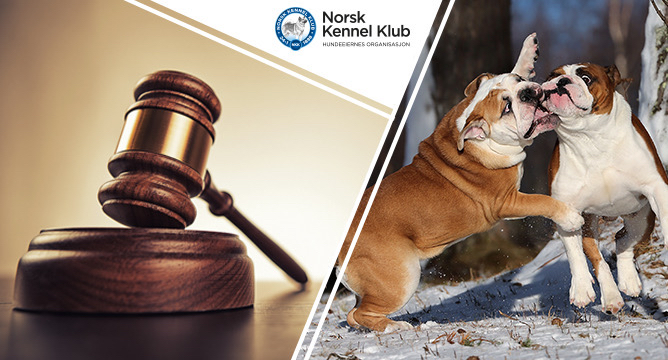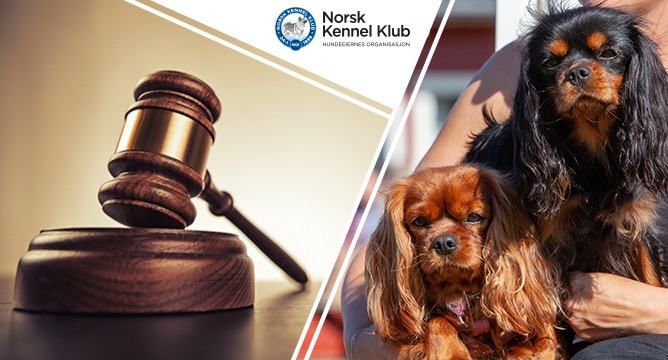24 novembre 2022
Legal case opposing NKK to the NSPA (follow-up)
Read more
-
2023 Distribution of FCI Pedigree Dogs in the EU
-
FCI World Challenge 2026
-
Breeding systems and dog health and welfare & Use of genomic tools
-
Illegal Puppy Trade in the European Union
-
FCI SAR Dogs, Judges Seminar 2024
-
FCI World Challenge 2025
-
2022 Distribution of FCI Pedigree Dogs in the EU
-
Cancellation of 2024 WC Lure Coursing
-
FCI Class Exercise Signs
-
PRO Experts FORUM 2023
-
WDS 2024 in Zagreb
-
Seminar for Herding Judges - TS 2023
-
Legal case NKK / NSPA (follow-up)
-
Legal case NKK / NSPA
-
Animal Protection Dog Ordinance in Germany
-
Dog Dancing Conference 2022
-
Riesenschnauzer: new colour variety
-
Judge Privacy Statement
-
2022 WDS (BR)
-
A&C SS 2020
-
2020 WDS in Madrid (ES)
-
2021 ESS (HU)
-
European Section Show (SI) & COVID-19
-
Healthy breeding & Dog Welfare
-
2020 WDS in Madrid (ES)
-
Privacy Policy
-
In memoriam Tibor Lovrencic
-
European Section Show (SI) & COVID-19
-
European Section Show (SI) & COVID-19
-
Brachycephalic breeds (NL)
-
2020 WDS in Madrid (ES)
-
COVID 19: Americas and Caribbean
-
WE BELONG TOGETHER!
-
COVID-19 & YOUR PET
-
2020 WDS in Madrid (ES)
-
Brachycephalic Obstructive Airway Syndrome
-
Situation in Norway 27/09/2019
-
Situation in Norway 09/09/2019
-
New Judges Directory
-
#saveourbreeds
-
Future FCI world and section shows
-
In memoriam Franco Mannato
-
2019 GA
-
ÇÖBAN KÖPEGI (331)
-
Official Carrier programmes
-
FCI European Section Show (2018)
-
Decease of Ole Staunskjaer
-
Russian Annual Sighthound Show in St Petersburg - Press release July 6th, 2017
-
New agreement between the Kennel Club and the FCI
-
International Dog Health Workshop 2017
-
Official Carrier programmes
-
Dogs are no consumer goods
-
EWC 2017 judges
-
An exciting new chapter is announced for the Eukanuba World Challenge
-
FCI & ANKC, June 2016
-
Official Carrier programmes
-
In memoriam Hans Lehtinen
-
For Dogs in China
-
Election of the FCI President, June 2015
-
FCI Judges Commission meeting in Luxembourg
-
Dr K. Rosaiah, Governor of Tamil Nadu state, welcomes the FCI International dog show in Chennai, India on September 14th, 2014
-
The Finnish Kennel Club Celebrates its 125th Anniversary
-
Interview with Helena Suni
-
Finnish Kennel Club acknowledges Kari Jarvinen’s long-standing contribution to the dog world
-
FCI World Dog Show 2014 : key-figures
-
Interview with Kari Järvinen, President of the WDS organising committee
-
The FCI President decorates 2 outstanding personalities at the Finnish Kennel Club
-
FCI launches new website
-
2014 Black Sea Winner : follow-up
-
The Finnish Kennel Club Celebrates its 125th Anniversary
-
Multiple CAC Shows
-
2014 FCI World Dog Show in Helsinki : entries start very enthusiastically
-
Latest update on European information
-
FCI and Eukanuba sign 3-year alliance agreement
-
The FCI Executive Committee and staff meet one of the FCI founding members
-
The FCI Executive Committee paying a friendly visit to their colleagues of the FCI Asia and the Pacific Section
-
The FCI Executive Committee and the AKC met in New York on January 3rd, 2014
-
FCI and CKC meet at CKC headquarters
-
FCI vs Federación Canina Internacional
-
KENNEL CLUB AND FCI AGREE MUTUAL RECOGNITION OF JUDGES
-
Cruelty to Dogs
 |
 |
Norwegian Kennel Club partly wins court appeal – a win for Bulldogs, but not for Cavaliers.
The restrictions toward the brachycephalic Bulldog are lifted!
The Court of Appeal in Norway ruled, and the verdict got announced on 18 November 2022.
The decision ruled in favour of the Norwegian Kennel Club (NKK) and the breeders concerning the English Bulldog but not for the Cavalier King Charles Spaniel, meaning the ban on the breeding of the English Bulldog as a brachycephalic breed is overturned.
The situation of the Cavalier King Charles Spaniel is different, and understanding the reasoning of the Court of Appeal and setting future objectives and further steps demand a thorough examination of the detailed verdict.
Based upon further information from the NKK, the FCI continuously guarantees its full support. We firmly state that the health matters of the breed in question can only be handled via registered breeding. The current ban only affects the registered and controlled population, bearing no solution for the health state of the unregistered dogs.
We thank the persistent work of the NKK during the lawsuit and congratulate the results related to the English Bulldog. I honestly hope the Cavaliers’ situation will also be positively resolved for the sake of the breed’s welfare.
Please read the international press release of the NKK for further information below.
You can find the original statement at https://www.nkk.no/rettssaken/nederlag-for-ansvarlig-raseavl-article220801-1455.html
T. Jakkel
FCI President
****************
The Norwegian Kennel Club (NKK) is disappointed by the judgement delivered by the Borgarting Court of Appeal and believes that it seriously intervenes in an area that is the jurisdiction of the public administration.
The appeal court ruled in favour of the Norwegian Kennel Club concerning the breed English Bulldog, but not for the Cavalier King Charles Spaniel. Even if the Norwegian Kennel Club is pleased with the outcome for the English Bulldog and the breeders, the judgement still creates more questions than answers.
The NKK believes that dog breeding must be regulated in relation to individual dogs, not breeds. A ban on breeding from healthy and unhealthy dogs alike, purely because they are said to belong to one particular breed, is no “victory for animal welfare”.
“This creates a lot of uncertainty and confusion. Who can decide if a dog is of one particular breed? Dogs registered with the Norwegian Kennel Club are microchipped and can be identified, but what about all the other ones? Which dogs does this apply to, specifically? Is it just the three breeders who were found liable that are banned from breeding, or does this apply to everyone that owns such a dog? And can dogs from these two breeds be used in crossbreeding? If not, I assume that the popular hybrid designer breed Cavapoo, which is a cross between a Cavalier and a Poodle, will also be forbidden,” says chairman of the NKK, Tom Øystein Martinsen.
“This can also mean that the ongoing positive work that has been done to improve the health of these dogs will have all been in vain. There’s no reason to believe that the breed club will see the point of continuing this work if they can’t breed these dogs in the future. Then it’s all a waste of time, and the international population won’t be able to benefit from it either,” he says.
However, according to the NKK, the most serious problem with the judgement is that the administration of the Animal Welfare Act has now been transferred from the Norwegian Food Safety Authority and the Ministry of Agriculture and Food to the courts. This means that any interest organisation and action group will be able to sue both private individuals and organisations and achieve a ban on an activity that they themselves are against, without professional bodies or the public administration being heard.
“In this case, the Norwegian Society for Protection of Animals has sued dog breeders who haven’t done anything wrong at all – they haven’t broken any rules, and their animals haven’t been checked and found to be sick. Even so, the breeders have been publicly denounced as animal abusers. It’s a disgrace and has been hugely stressful for the people involved.”
“The NKK has never denied that health challenges exist for these two breeds and other breeds – for dogs in general, for that matter. That’s why we have worked systematically and scientifically with documentation, health checks and guidelines in order to produce as many healthy dogs as possible and avoid the anatomical traits that lead to health issues. We’ve received international recognition for our work and can document progress in many breeds. But we’ll never reach a point where all dogs are born healthy and live long lives without diseases. That’s impossible – dogs are living creatures,” Tom Martinsen points out.
“We have collaborated very well with the Norwegian Food Safety Authority and the Ministry of Agriculture and Food for a number of years and have been looking forward to the publication of a new regulation on dog breeding. Transferring the administration of the Animal Welfare Act to the courts should create uncertainty in all sectors involved with the breeding of animals, not just dogs. That’s why we will probably appeal the decision to the Supreme Court. We must, of course, read the judgement carefully first, but the principle itself is very important, and it requires a clarification at the highest level,” Tom Martinsen concludes.
****************